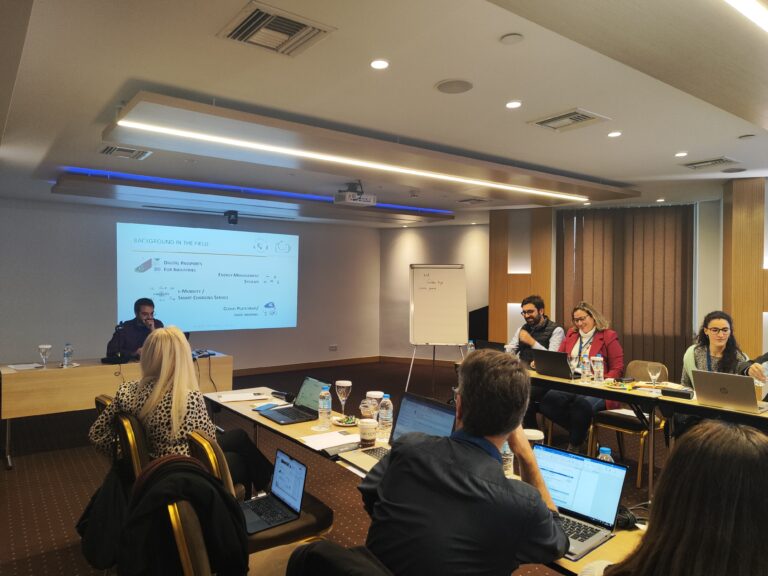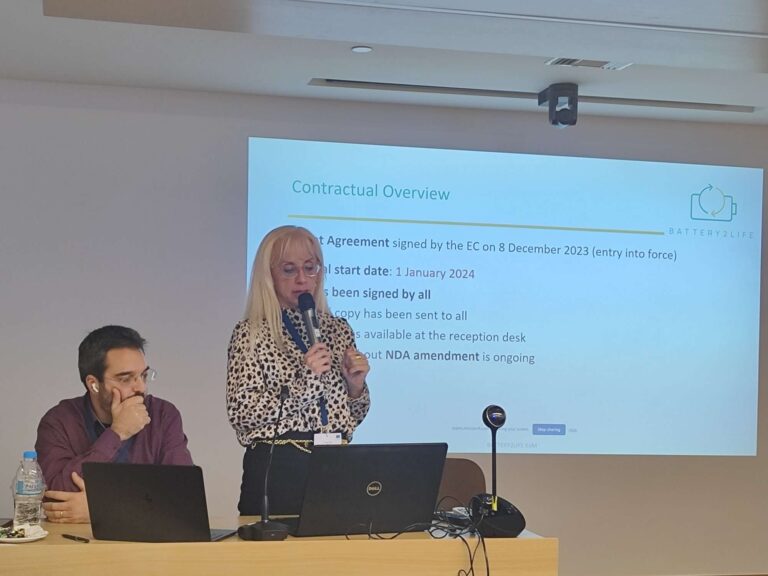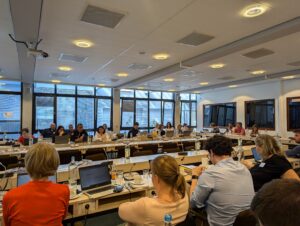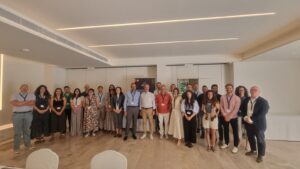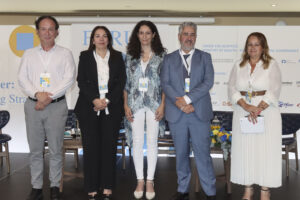The kickoff meeting of BATTERY2LIFE project, a new Horizon Europe project, was held on 23 & 24 January 2024, in Athens, Greece, hosted by I-SENSE Group, the project’s coordinator. Consortium partners had the chance to discuss the main objectives of the project and their strategy for the future.
The BATTERY2LIFE project aims to facilitate the transition of batteries to their second life, fostering innovation in the European Battery Industry. It focuses on implementing open and adaptable smart battery Management Systems (BMS) and enhancing system designs. Additionally, the project proposes methods for efficiently and reliably reconfiguring used batteries.
The opening speech was made by I-SENSE Group Director (also ICCS R&D Director) Dr Angelos Amditis and Dr Evangelia Portouli, I-SENSE’s Administration, Quality & Dissemination Director who presented the financial planning. Dr Evangelos Karfopoulos -the day-to-day project manager- presented an overview of the project and coordinated the discussions and Maria Tsirigoti, the Dissemination and Communication manager of BATTERY2LIFE project gave a description of the communication planning.
The BATTERY2LIFE project is comprised of 11 partners, two of which are associated partners. There are five research and academic organisations (ICCS, CID, AIT, CSEM, EPLF), four industrial partners (FRONIUS, MIBA, PPC, SLG), one SME (ETE) and one standardisation body (UNE).
MORE ON THE PROJECT
BATTERY2LIFE introduces two new battery system design frameworks serving the upcoming market needs: the first supports the business transition for the initial market by restructuring existing battery design patterns while the second one introduces completely new design principles for 1st and 2nd life of the battery.
A completely new BMS design mentality is introduced to the battery industry by delivering an open and interoperable hybrid BMS architecture (with an Embedded and a Cloud section) leading the transition from technology-driven BMS designs, to serve the needs of specific applications and battery technologies, to new data-driven and application-agnostic BMS designs, that can be easily adapted and updated to serve the requirements of different battery technologies and any 2nd life battery stationary storage application. Furthermore, Battery2Life introduces innovative embedded sensing and more accurate SOX estimation algorithms, new SOX indicators appropriate for 2nd life use -i.e. SOS (safety) and SOW (warranty) – and a new EIS implementation approach by integrating it in the BMS, that will enable the detailed safety and reliability monitoring at both cell and module level during 1st and 2nd life usage. The project will specify an open BMS concept, data formats, taking into account and extending the battery passport concept (The Battery Passport is widely understood as a digital system that stores relevant battery data along the entire battery lifecycle), and interoperable communication via the cloud platform to third parties including the future passport exchange system, to facilitate monitoring and assessment. The project prototypes will be demonstrated within the context of two business cases, i.e. domestic storage application and utility-scale load levelling one.
